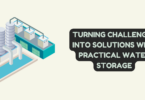
Data Analytics
One of the key advantages of modern digital technologies is the ability to process tremendous volumes of data. Healthcare is among the fields that can greatly benefit from such a capability. Why? The human body is among the most complex structures known to humankind. In this light, Big Data analytics is becoming a vital trend for modern healthcare organizations. In this article, we look at the key features of the trend and discuss its challenges and limitations. As you’ll see, employing custom healthcare software development services is a worthwhile investment for many companies within the relevant sector.
Understanding Big Data in Healthcare
In healthcare, Big Data refers to the vast amount of information generated from various sources, such as electronic health records (EHRs), medical devices, wearable sensors, and research studies. It encompasses data that is complex, large in volume, and often comes in different formats. This data holds valuable insights that can be analyzed to improve patient care, identify trends, and make informed decisions. Healthcare-related Big Data can include patient demographics, medical histories, diagnostic tests, treatment outcomes, and population health data. By harnessing and analyzing this data, healthcare professionals can gain a better understanding of diseases, develop personalized treatments, and enhance overall healthcare delivery.
Challenges and Limitations of Big Data Analytics in Healthcare Software
Implementing Big Data analytics in healthcare software comes with several challenges and limitations. Privacy and security concerns are paramount, as healthcare data contains sensitive information that must be protected from unauthorized access or breaches. Ethical considerations arise in terms of data collection, ensuring consent, and maintaining patient confidentiality. Technical challenges include the complexity of data integration, interoperability issues, and the need for a robust infrastructure to handle large datasets. Furthermore, healthcare organizations may face resource constraints and require skilled data analysts to effectively leverage Big Data analytics. Addressing these challenges is crucial to maximizing the potential benefits of Big Data analytics while upholding privacy, ethics, and technical requirements.
Applications of Big Data Analytics in Healthcare Software
What are the key applications of Big Data in healthcare software? Here are some of the most interesting use cases:
1. Predictive Analytics
Predictive analytics in healthcare software involves using Big Data analytics to forecast outcomes and identify potential risks. It aids in disease prevention and early diagnosis by analyzing patterns and risk factors. For example, predictive modeling can help identify individuals at high risk of developing chronic diseases, enabling proactive interventions and lifestyle modifications.
2. Clinical Decision Support Systems
Clinical decision support systems (CDSS) leverage Big Data analytics to enhance clinical decision-making. These systems provide healthcare professionals with evidence-based guidelines, treatment recommendations, and patient-specific information. They can improve diagnosis accuracy, prevent medication errors, and optimize treatment plans. For instance, CDSS can alert doctors to potential drug interactions or suggest appropriate treatment options based on a patient’s medical history and current condition.
3. Real-time Monitoring and Surveillance
Real-time monitoring and surveillance using Big Data analytics are crucial for disease tracking and public health emergencies. By analyzing vast amounts of data from multiple sources, such as social media, hospital records, and environmental sensors, healthcare organizations can detect disease outbreaks, monitor population health trends, and respond effectively. This capability is particularly valuable in managing infectious diseases and ensuring timely interventions.
4. Personalized Medicine
Big Data analytics plays a significant role in personalized medicine by analyzing patient-specific data to develop tailored treatment plans. By considering factors such as genetic information, medical history, lifestyle, and treatment response data, healthcare providers can customize interventions for better patient outcomes. Personalized medicine has shown promise in cancer treatment, where genetic profiling helps identify targeted therapies and predict treatment responses.
Overcoming Challenges and Ensuring Data Privacy in Healthcare Software
To overcome challenges and ensure data privacy in healthcare software, regulatory frameworks, and compliance measures play a vital role. Implementing a top healthcare CRM with robust security protocols and encryption techniques helps protect sensitive data from unauthorized access. Regular audits and risk assessments help identify vulnerabilities and ensure compliance with data protection regulations, such as HIPAA in the United States. Continuous training and awareness programs also help healthcare professionals maintain privacy standards and handle data responsibly.
Conclusion
All in all, Big Data is the future of healthcare technology in one way or another. If you want to create platforms that maximize the benefits for the average patient, your goal should be to implement this technology in your organization. Are you interested? In that case, we recommend addressing professionals who can help with implementing this technology in your business. If you want to install Big Data in your organization, address companies such as Keenethics. Professionals there know how to deliver high-quality software for their partners.






